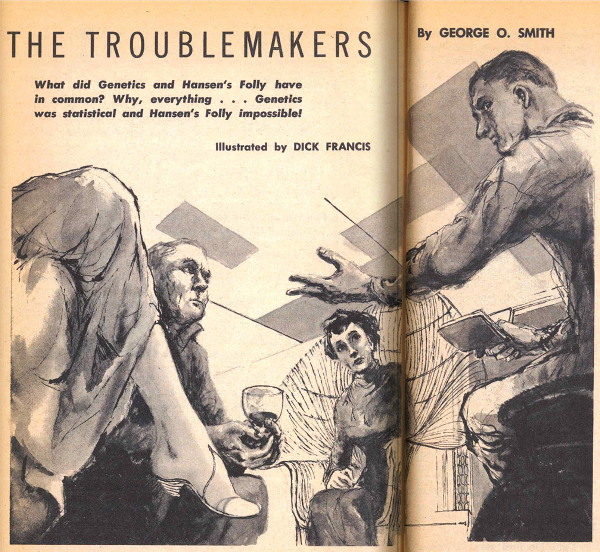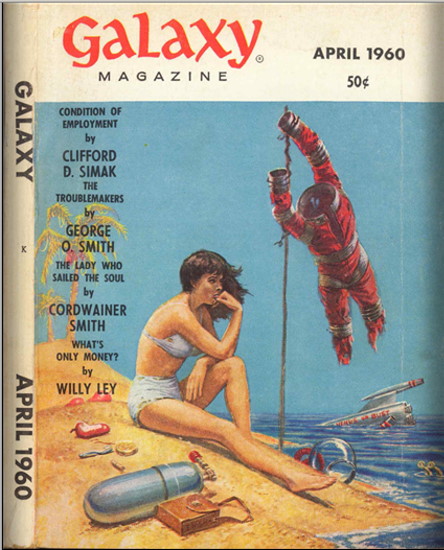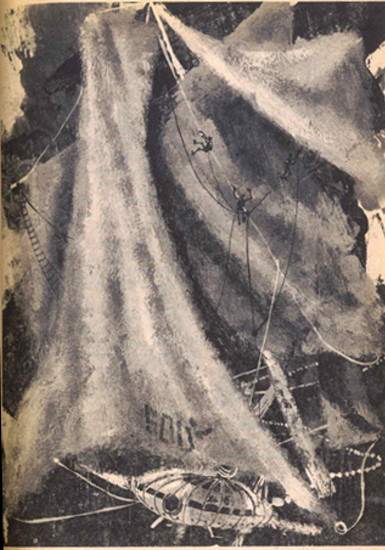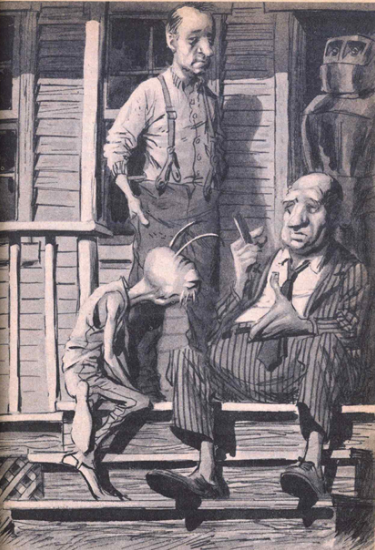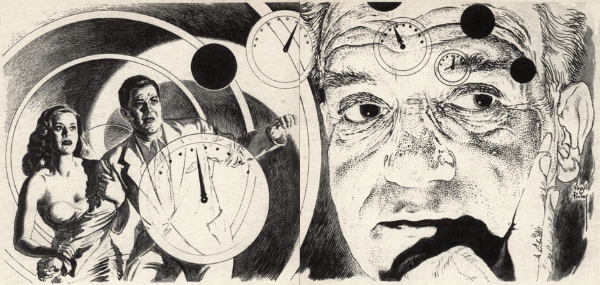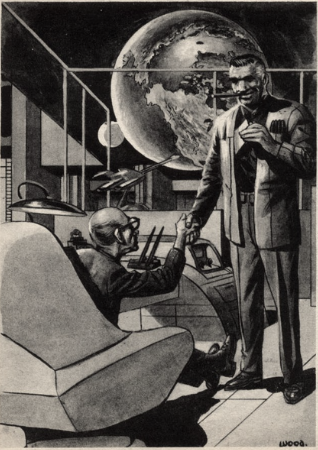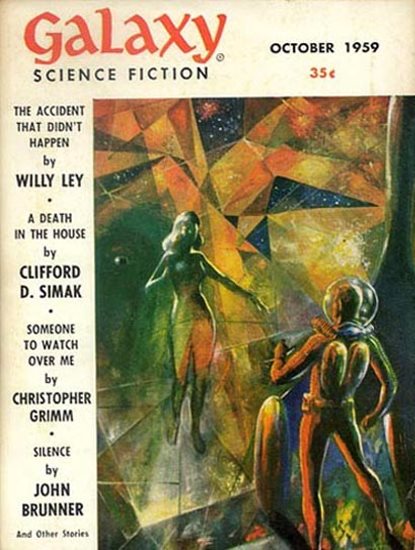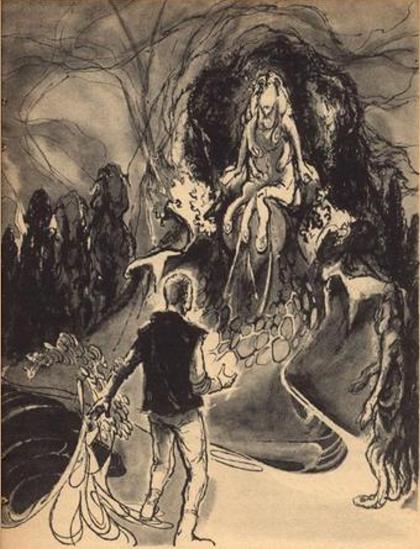Whenever I read the book review columns by Floyd Gold, Damon Knight, Groff Conklin, etc., or the science articles by Willy Ley and Isaac Asimov, I’m always as fascinated by the little personal details they disclose as the information and opinions they provide. It’s a glimpse into their lives that humanizes their viewpoint. Anecdotes make fun reading, too.
Since I assume all of my readers (bless the five of you!) feel similarly, otherwise why bother reading my column, I thought I’d share a little bit about how information gets into my brain prior to article composition.
My issues all come by mail subscription now as it is significantly cheaper than buying them on the newsstand and more consistent. It means I’m no longer hunting the newsstands for other magazines, but now that there are so few active digests, this seems the best way to go.
I have an evening ritual that I’ve preserved since my teen years, particularly in the Fall and Winter when the sun sets early. After coming home from work, the rays of sunlight slanted sharply against my driveway, I pull out my portable radio and a beverage, rest my back against a tree or lamppost, and read until the sun dips below the horizon. Here in Southern California, we get a nice mix of White, Negro, and Latin stations, so I can listen to all the latest Rock ‘n Roll and Rumba as well as the insipid croonings of Paul Anka and Pat Boone. It makes for a delightful half hour of escape from the real world better than M, reefer, or any other drug you’d care to mention.
What have I been reading, you ask? This bi-month’s issue of Galaxy, of course—December 1959 to be exact. Galaxy is the most consistent of the four magazines to which I have subscriptions, generally falling in the upper middle of the pack.
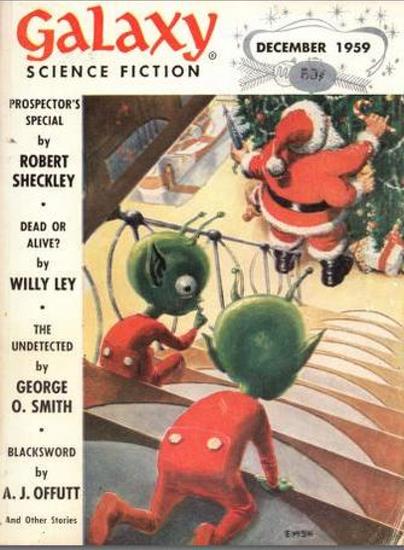
EMSH
As always, I started with Willy Ley’s column. I’m impressed that after ten years of writing, he still finds interesting topics to teach about. In this one, he discusses the (probably) extinct Giant Sloth and the efforts naturalists have made over the centuries to learn more about the creature. I love paleontology, so it was right up my alley. By the way, for the overly curious, this piece I read while soaking in a nice hot bath over the weekend.
Leading the book is Robert Sheckley’s newest, Prospector’s Special. The setting is Venus , where a handful of hardscrabble miners brave the blazing heat and sandwolves of the Venusian deserts in the hopes of finding a vein of Goldenstone. It’s one of those stories where the protagonist runs into worse and worse luck and has to use wits to survive to the end, which has a suitably happy ending. Bob is invariably good, particularly at this kind of story, and I polished this one off in the same aforementioned bath.
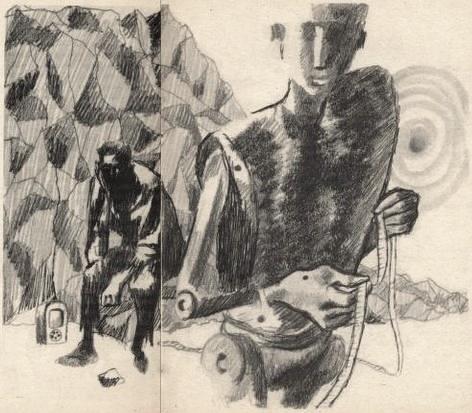
DILLON
Rosel George Brown continues to be almost good, which is frustrating, indeed. Her Flower Arrangement is the first-person narrated story of a rather dim housewife and how the bouquet she and her kindergartener made turned out to unlock the secrets of the universe. It comes from a refreshing female perspective, but it’s just a bit too silly and affected to work well.
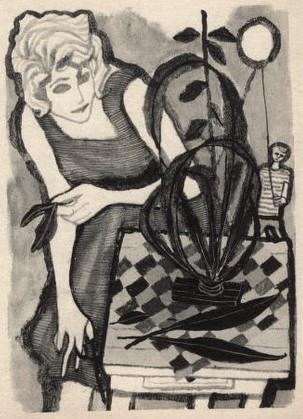
DILLON
Con Blomberg’s only written one other story, and that one appeared in Galaxy two years ago. His Sales Talk is interesting, about two salesmen who try to sell a recalcitrant unemployed fellow on the joys of living vicariously through the taped memories of others. The would-be mark makes a compelling argument against the dangers of becoming a worthless consumer. There is, of course, a twist, which I half-predicted before the end.
There's an interesting point to the story. In the first place, it predicts a “post-scarcity” economy. Let me explain: There are three sectors to the economy. They are Agricultural, Manufacturing, and Service. Until a few hundred years ago, Agricultural was far and away the dominant sector, with most people relying on subsistence farming. Then the Industrial Revolution hit, and the peasants moved to the city to work on the assembly line, while farming became more and more mechanized, requiring fewer people. As industry became more efficient, the Service sector grew—waiters, courtesans, attorneys, doctors, advertisers, artists, etc.
But what happens when industry and agriculture become fully mechanized? What if robots take over the Service sector? What is left for humans to produce? The world only has so much need for art, music, politics, and religion. In a post-scarcity economy, most of us will become consumers, so the more pessimistic predictions go. And all we'll do all day is lie around living other people's dreams, predicts Blomberg.

MORROW
Is the idea that plugging oneself into a memory-tape machine, experiencing all five senses and the feelings of the original senser, all that different from watching a film or reading a good story? After all, both take you out of reality for a while, make you feel along with the protagonists. When full “Electronic Living” becomes possible, will it really be a revolution or just evolution? Food for thought.
That’s what I’ve got so far. Stay tuned soon for further reviews of this extra-thick magazine. You’ll next hear from me in sunny Orlando, Florida!
—
Note: I love comments (you can do so anonymously), and I always try to reply.
P.S. Galactic Journey is now a proud member of a constellation of interesting columns. While you're waiting for me to publish my next article, why not give one of them a read!

(Confused? Click here for an explanation as to what's really going on)
This entry was originally posted at Dreamwidth, where it has  comments. Please comment here or there.
comments. Please comment here or there.






